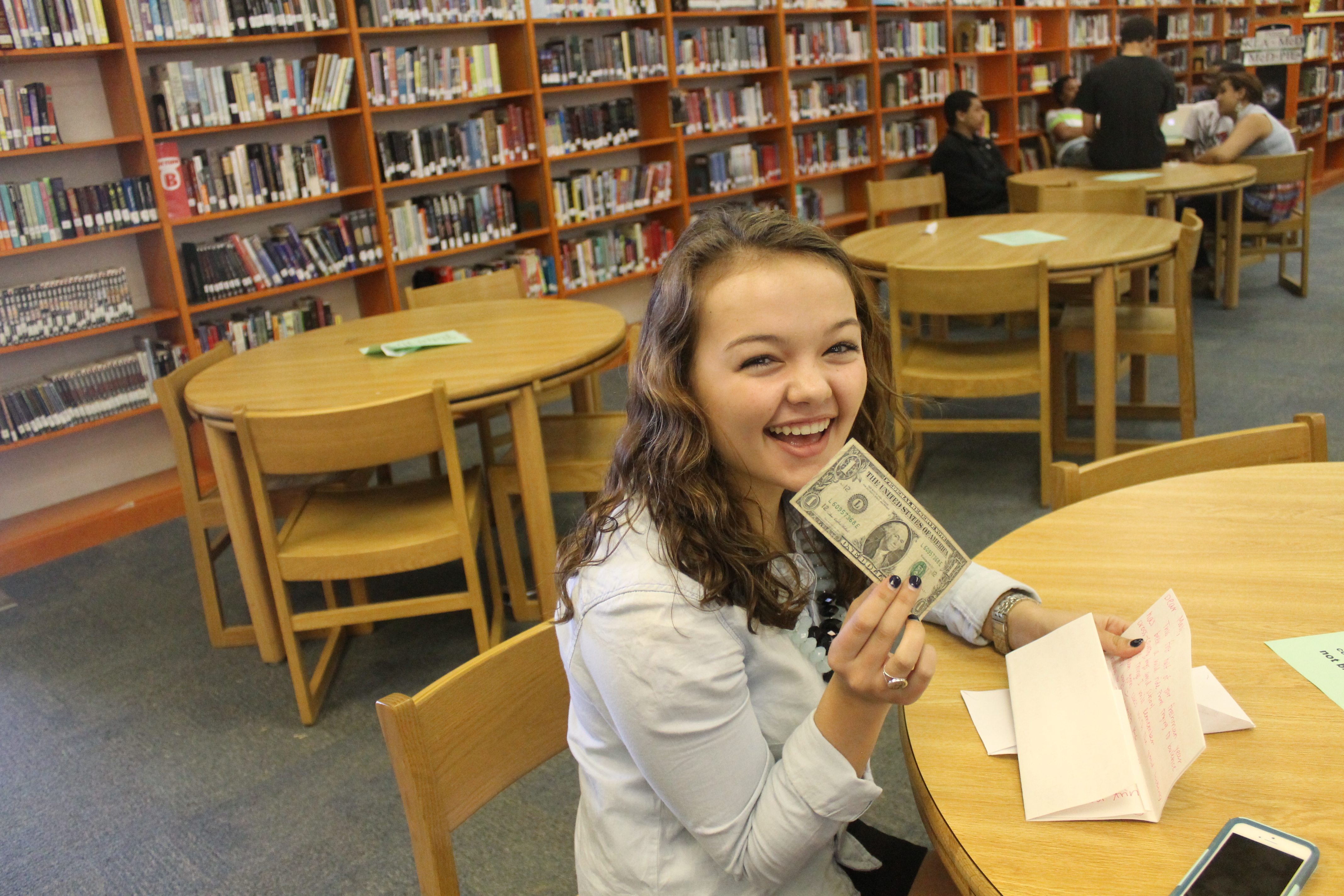She held the envelope. Her name and address were in her handwriting, but it was written her freshman year. Senior Madison Cohen smiled—the envelope was much bigger than she remembered. She opened it to find pictures, notes, reminders and a letter from herself.
“[Opening the letter was like] a flashback— remembering writing it, sticking all the stuff inside,” Cohen said.
English teacher Kathy Greenlee has her freshman classes write letters to their future selves at the end of their freshman English class. These are delivered to their houses shortly after their graduation, three years later.
Many seniors are excited to see how they have changed since freshman year. The Omniscient arranged for Cohen and a few other seniors to see their letters early. Other seniors can see this change soon when Greenlee sends out her annual freshman letters.
“As a teacher, since I teach freshmen and juniors, I definitely see a change in those two years,” Greenlee said. “Senior year is obviously the biggest change because it’s over for them, and they’re about to enter the real world.”
Greenlee, who has upheld the letter tradition for five years, believes this is a good opportunity for students to see how they have changed throughout high school.
“The first time I did it, I didn’t feel like some of them took it too seriously, but I told them to put in as much as they could,” Greenlee said. “Some of them just put a slip of paper in the envelope and there probably wasn’t much on it, but other kids just wrote and wrote and wrote and put little trinkets in it.”
Senior Jake Chavez was pleased with the assignment his freshman year.
“I thought it was really interesting, and it showed that she actually cared about her students and our high school experiences,” Chavez said.
When freshmen write their letters, they often don’t anticipate how much it can mean to them later in life. Some don’t realize the impact until they are beyond high school.
“As a senior [in high school], I realized how special it could’ve been; I guess I didn’t realize that as a freshman,” said Brandon Edwards, a former Northwood student and current N.C. State freshman. “I wish I took it more seriously—I was 14 when I wrote it.”
Edwards, like many others, did not realize the letter’s potential impact until after he received it senior year.
“It’s important to be serious and take a second to reflect, but we were all 14 and kind of immature,” Edwards said.
When freshmen write the letters, they are encouraged to take it as seriously as possible and to include specific details about their lives and goals. By doing this, they will be able to look back three years later and realize how far they have come and how much they have changed.
Freshmen and seniors tend to have different views on the letters. Freshmen see it as an assignment they have to complete, while most seniors look forward to reading it. However, not all seniors want to reflect on how they were as freshmen.
“I thought I’d look back on it and see how much I’ve changed, and I’ve changed a lot,” senior Stephanie Martinez said. “I have an idea of what I wrote and now I feel stupid. I said some pretty dumb things.”
With how busy high school is, seniors can forget that they even wrote letters to themselves. Students typically do not know what to expect.
“Everyone changes a lot throughout high school and I feel like it’s easier for other people to notice, but when it’s yourself, that’s a bigger thing,” Cohen said.
If seniors do decide to read their letters, most appreciate the detail they included.
“It was really sweet. It was a good reflection on my freshman year,” Cohen said. “I thought it was really well-written for a freshman.”
Regardless of whether or not they want to read their own letters, seniors generally speak highly of the letter assignment.
“I think [Greenlee] should keep doing this, and I recommend it for other English teachers as well,” said senior Moli Eddins. “I think it’s a really good reflection and it’s something really special… and it’s a really sweet token.”
Edwards has a piece of advice for all freshmen writing the letters and seniors looking forward to reading their own.
“You’re going to change more in high school than you think you are. If you think you’re not changing, you’re wrong,” Edwards said. “I’ve changed from my senior year of high school into college even. I’ve evolved.”
— Emma Korynta and Donald Yates



